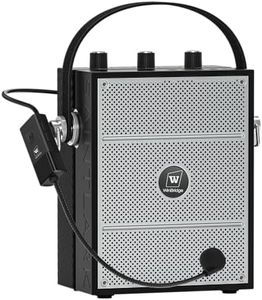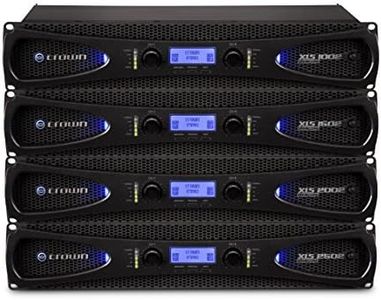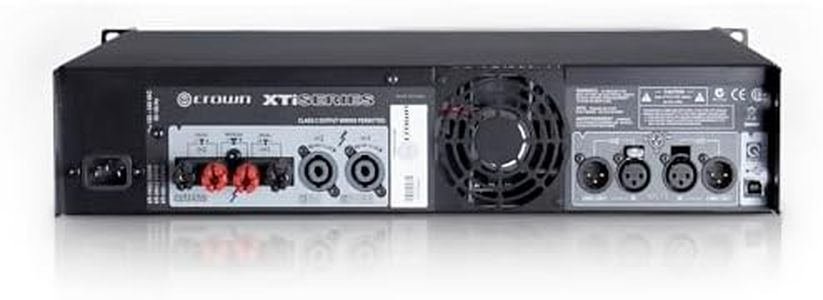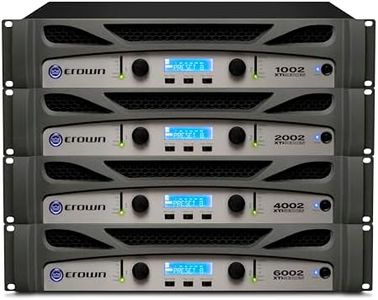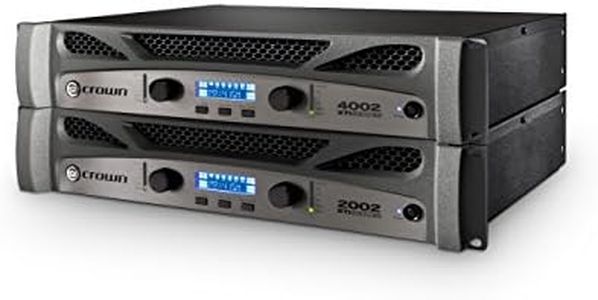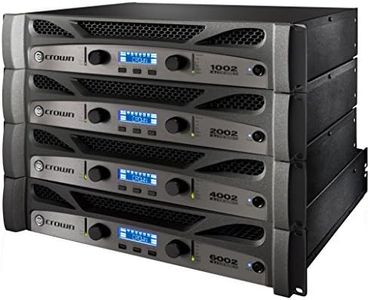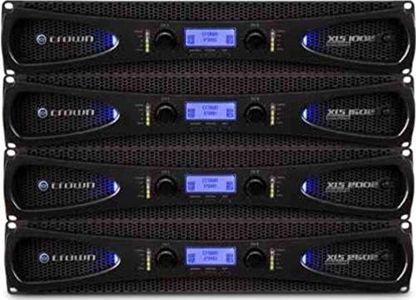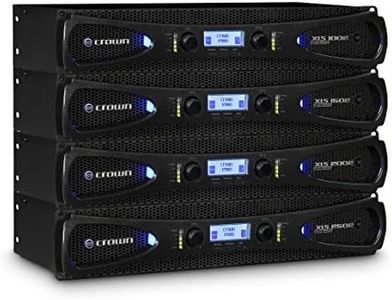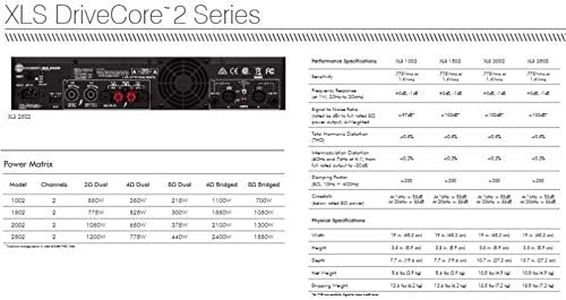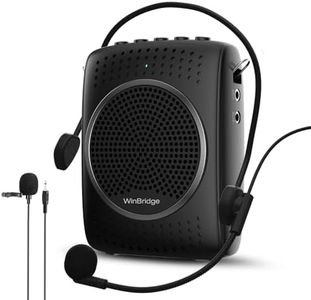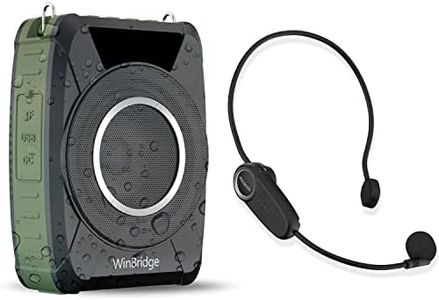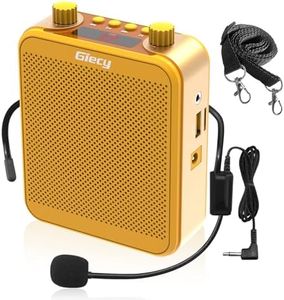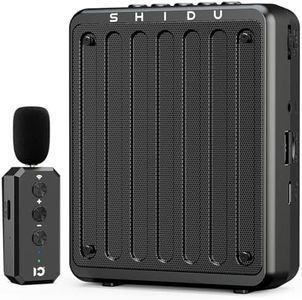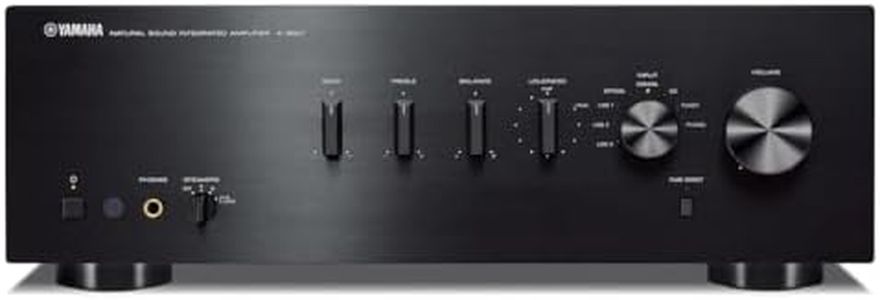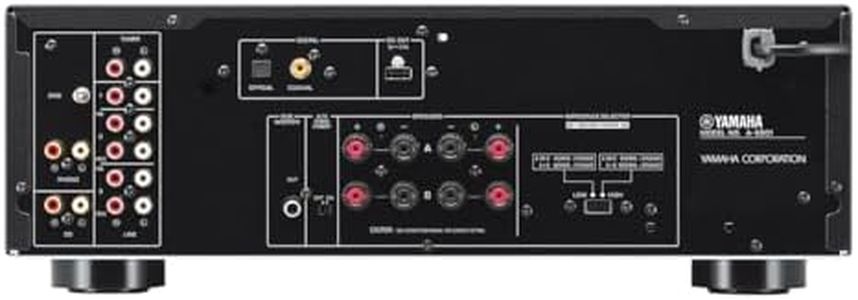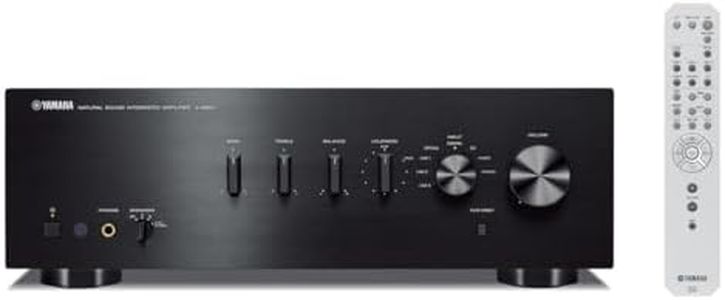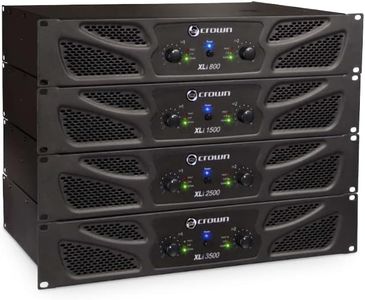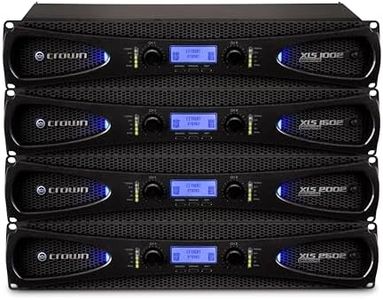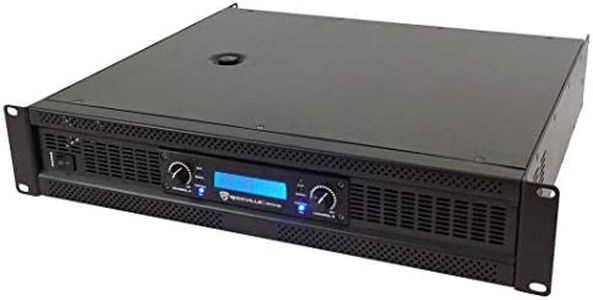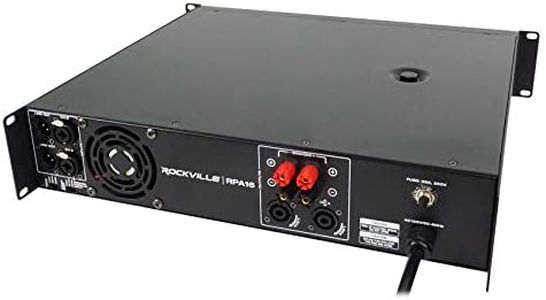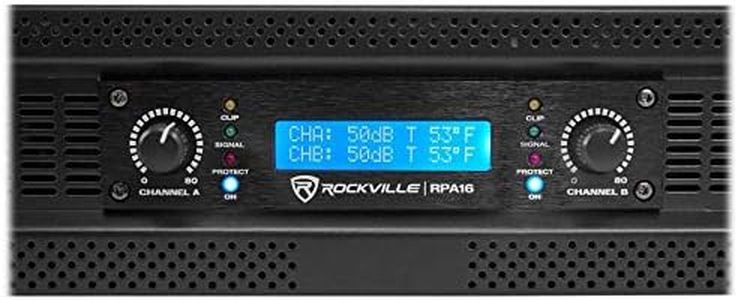10 Best Dj Amplifiers 2026 in the United States
Winner
Crown XLS2002 2-Channel Class D DriveCore Professional Power Amplifier with DSP, Band Pass Filters & Peakx Limiters. XLR/RCA Inputs, 650W at 4 Ohm, PureBand Crossover System. Black
The Crown Power Amplifier, 650-Watts (XLS2002), is a solid choice for DJs looking for a powerful and efficient amplifier. It delivers a substantial 650 watts of power at 4 ohms, ensuring strong performance for most DJ setups. One of its standout features is the Class D amp with Crown's Drive Core technology, which contributes to its lightweight nature, coming in at under 11 pounds. This makes it highly portable and easy to handle during setups and breakdowns.
Most important from
529 reviews
Crown XTi4002 Two-channel, 1200-Watt at 4Ω Power Amplifier
The Crown XTi4002 is a solid choice for DJs seeking a reliable power amplifier. With a power output of 1200 watts at 4Ω and even more at lower impedance, it offers ample power for various setups. This amplifier excels with its Peak x Plus Limiters, ensuring that your sound remains clean and protected from distortion, which is crucial during performances. The Enhanced Subharmonic Synth section is another great feature, allowing for tailored low-frequency adjustments that can enhance the music experience in large venues.
Most important from
114 reviews
Crown XTi2002 Two-channel, 2000-Watt at 4Ω Bridged, 800-Watt at 4Ω Dual, Pro Power Amplifier. Gray
The Crown XTi 2002 amplifier is a solid choice for DJs needing reliable power and flexibility. It delivers a strong 800 watts per channel at 4 ohms, which means it can easily drive most DJ speakers with enough volume and clarity. The amplifier offers user-adjustable fan modes, allowing you to control the cooling system to balance noise and performance depending on your setup, which is handy for both quiet gigs and high-energy events. Its aluminum build with integrated handles makes it durable and easy to transport.
Most important from
114 reviews
Top 10 Best Dj Amplifiers 2026 in the United States
Winner
Crown XLS2002 2-Channel Class D DriveCore Professional Power Amplifier with DSP, Band Pass Filters & Peakx Limiters. XLR/RCA Inputs, 650W at 4 Ohm, PureBand Crossover System. Black
Crown XLS2002 2-Channel Class D DriveCore Professional Power Amplifier with DSP, Band Pass Filters & Peakx Limiters. XLR/RCA Inputs, 650W at 4 Ohm, PureBand Crossover System. Black
Chosen by 1114 this week
Crown XTi4002 Two-channel, 1200-Watt at 4Ω Power Amplifier
Crown XTi4002 Two-channel, 1200-Watt at 4Ω Power Amplifier
Crown XTi2002 Two-channel, 2000-Watt at 4Ω Bridged, 800-Watt at 4Ω Dual, Pro Power Amplifier. Gray
Crown XTi2002 Two-channel, 2000-Watt at 4Ω Bridged, 800-Watt at 4Ω Dual, Pro Power Amplifier. Gray
Crown XLS1502 2-Channel Class D DriveCore Professional Power Amplifier with DSP, Band Pass Filters & Peak Limiters. XLR/RCA Inputs, 525W at 4 Ohm, PureBand Crossover System. Black
Crown XLS1502 2-Channel Class D DriveCore Professional Power Amplifier with DSP, Band Pass Filters & Peak Limiters. XLR/RCA Inputs, 525W at 4 Ohm, PureBand Crossover System. Black
QSC RMX2450a 800 Watt 2 Channel Power Amplifier
QSC RMX2450a 800 Watt 2 Channel Power Amplifier
YAMAHA A-S501BL Natural Sound Integrated Stereo Amplifier (Black)
YAMAHA A-S501BL Natural Sound Integrated Stereo Amplifier (Black)
Crown XLi800 Two-channel, 600-Watt Bridged 8Ω Power Amplifier. Professional DJ, PA, Stage Amp. Black
Crown XLi800 Two-channel, 600-Watt Bridged 8Ω Power Amplifier. Professional DJ, PA, Stage Amp. Black
Crown XLS1002 2-Channel Class D DriveCore Professional Power Amplifier with DSP, Band Pass Filters & Peakx Limiters. XLR/RCA Inputs, 350W at 4 Ohm, PureBand Crossover System. Black
Crown XLS1002 2-Channel Class D DriveCore Professional Power Amplifier with DSP, Band Pass Filters & Peakx Limiters. XLR/RCA Inputs, 350W at 4 Ohm, PureBand Crossover System. Black
Yamaha PX5 Dual Channel 2x800W Lightweight Power Amplifier w/ DSP
Yamaha PX5 Dual Channel 2x800W Lightweight Power Amplifier w/ DSP
Rockville RPA16 10000W Peak/3000W RMS 2-Channel Power Amplifier, Bridgeable, Built-in Crossover, Limiter, LCD Display, XLR/Speakon/Banana Outputs, for Pro Audio and DJ
Rockville RPA16 10000W Peak/3000W RMS 2-Channel Power Amplifier, Bridgeable, Built-in Crossover, Limiter, LCD Display, XLR/Speakon/Banana Outputs, for Pro Audio and DJ
Our technology thoroughly searches through the online shopping world, reviewing hundreds of sites. We then process and analyze this information, updating in real-time to bring you the latest top-rated products. This way, you always get the best and most current options available.




